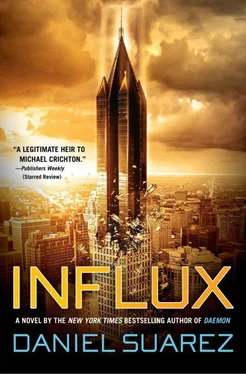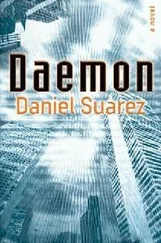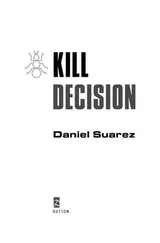Cotton stopped peeling seafood for a moment to stare wistfully into the distance. “I thought I had it all figured out back then.” He laughed. “But we don’t know what we don’t know until we know.”
“Someone hired you to break into the BTC?”
“It’s not like I tossed a brick through the window. I had a sophisticated operation. I am a master thief. It’s just that there is no breaking into the BTC.” He opened a glass-faced wine cabinet and held up a bottle of red. “Châteauneuf-du-Pape?”
Grady nodded toward his half-full cognac. “No, I’m good, thanks.”
Cotton started opening the wine as he continued. “And that low-profile client, I later found out, was the CIA. Wish I’d known that back then. They have a rather dismal history when it comes to break-ins.
“I thought I was clever, but I got caught before I even got into the premises. Turns out the exterior of their building is a facade in more than the traditional sense. There are no windows. No surface-level doors—or at least none that go anywhere. Behind the concrete-and-glass perimeter are thirty millimeters of diamond-aggregate nanorods, black as Sauron’s tower—that’s where I got the idea for this place, by the way. The BTC HQ goes a few hundred feet underground—that I know of. They project holograms on the walls inside to make it appear like you’re looking out a window at the real world. The human eye can’t detect the difference with the tech they’re using. So they’re constantly switching the view to live shots taken by their video dust cameras scattered around the world—extradimensional transmitters link all their comms.” He looked up. “You probably figured that out by now. It’s why no one can eavesdrop on them.”
Grady considered this as he took another sip of the precious cognac. After savoring it for a few moments, he said, “And they caught you?”
Cotton nodded as he started cleaning seafood again. “Yeah, and you can imagine I had my eyes opened fast. A barbarian hauled before Caesar. The director at the time, a little waif of a man named Hollinger, was impressed I’d gotten as far as I did. He offered me a deal: I could either work for them as the public face of the Winnowers—become the infamous Richard Louis Cotton—or I could get pushed through an exothermic decomposition beam.” He turned back. “And you saw what one of those did to our friend Agent Davis.” Cotton paused for a moment. “Poor woman.”
“So you became the Antitech Bomber.”
“No one in the BTC wanted to be Cotton, and they needed a new antitech boogeyman. They kept me on a short leash for quite some time. The plan was that after a decade they’d retire Cotton, too. I was supposed to relax in idyllic splendor among the other godlings.” He chuckled as he took a sip of wine from the crystal bulb he’d half filled. “But then, I never really believed that. And also I’d never forgotten the job I’d been hired to do. After all, how often does a thief get a chance to steal back the future?”
“Then you already had a plan? Which we disrupted…”
“You might say we have something in common, Mr. Grady.”
Grady finished off his cognac, then pulled the video projector from beneath his shirt on its chain. “Maybe you can help me then. I need to decode the data on this device—it’s DNA-formatted.”
Cotton shrugged. “That’s the only real format there is.” He looked at the thin piece of bone. “What is it?”
Grady thumbed the button, and Chattopadhyay’s image appeared on the wall. “My name is Archibald Chattopadhyay, nuclear physicist and amateur poet. I have a lovely wife, Amala, who has given me five wonderful children. I led the team that first perfected a sustained fusion reaction…” Grady paused it.
“Clever bastards at Hibernity, aren’t they? I’d heard rumors that they’d taken over half the prison.”
“But they still can’t escape. That’s what I’m hoping to help them do.”
Cotton gestured to the device. “Leave it with me. I’ll decode all the data that’s on it.”
Grady hesitated. “We’ll do it tomorrow—after some rest. I don’t want to let this thing out of my sight.” He then put it away beneath his shirt again.
“Suit yourself. Just let me know when you’re ready.”
Grady looked down the corridor. Alexa was nowhere in sight. “You have beds in this place?”
“Sure. Rooms on both sides of the hall. Take any empty one.”
Grady gazed into the dark at the hall’s end. “I should go thank Alexa before I get some sleep. She did save me.”
Cotton looked up from his work. “You really think your thanks is what she wants right now?”
Grady considered this. He finally nodded. “I guess not.”
With that he went to find a bed.
CHAPTER 25
Domestic Dispute
In the predawn stillness thestreet of downtown Detroit were nearly deserted. The office towers were still mostly dark. Graham Hedrick sat in the command chair of the BTC’s mission control center overlooking the big screens and the specialist workstations in the room below. He could see a large image of North America centered on Detroit and the Great Lakes on the central screen above; several incoming objects were being tracked across the plains and also coming in from central Canada over the Great Lakes.
Alarms were blinking on several screens.
Hedrick nodded to himself. “X-51 WaveRider cruise missiles. I’m impressed by their initiative.” Someone had made a command decision somewhere on the other side. He knew these hypersonic missiles could do thirty-six hundred miles an hour—which meant, at six hundred miles, they were only ten minutes away. Launched from a B-52 bomber, they wouldn’t be mistaken by other global powers for an ICBM launch, but they could do a great deal of damage if they reached their destination—which, according to telemetry reports, was BTC headquarters in downtown Detroit. At that speed, they carried very few explosives. Instead, they were packed with scored tungsten rods. Just before impact, their modest warhead would detonate, showering the target area with thousands of fragments—obliterating anything in a three-thousand-square-foot area in a rain of hypersonic metal.
The BTC had played around with this technology in the ’70s. Retro stuff, but still quite effective.
The annoying thing was that BTC gravity mirror technology wasn’t useful here since the X-51s were driven by ramjet engines; they were already resisting gravity as they powered onward. It was just one of the many reasons Hedrick had been pushing so hard in recent years for gravity amplification. Stopping them dead in the air, or turning them around—now that would be really useful.
“Mr. Director, you have a video call from Site R. It’s General Westerhouse.”
Hedrick nodded. “Put him up.”
A grim-faced, square-shouldered African American four-star U.S. Army general festooned with campaign ribbons appeared on a holographic screen that materialized just to the right of Hedrick’s gaze.
“Graham Hedrick, I am General Gerald Westerhouse. I’m issuing you a formal demand to surrender to lawful authorities and bring this situation to a peaceful resolution.”
Hedrick felt truly annoyed. “I’ve been trying to bring this to a peaceful resolution from the start, General, but Director Monahan seems to have other ideas. Is she the one who put you guys up to this?”
The general kept a poker face. “You assassinated the deputy secretary of Homeland Security, Mr. Hedrick. Surely you realize that the United States government is not going to stand by while one of its federal bureau chiefs foments civil war.”
“Let’s not get melodramatic. The man was meddling. And it’s not like there’s never been any fratricide between agencies before. If anyone should be mad, it’s me. I’m trying to carry out our legal mandate to protect the nation—and by extension that means the world—and the U.S. government keeps getting in my way.”
Читать дальше












